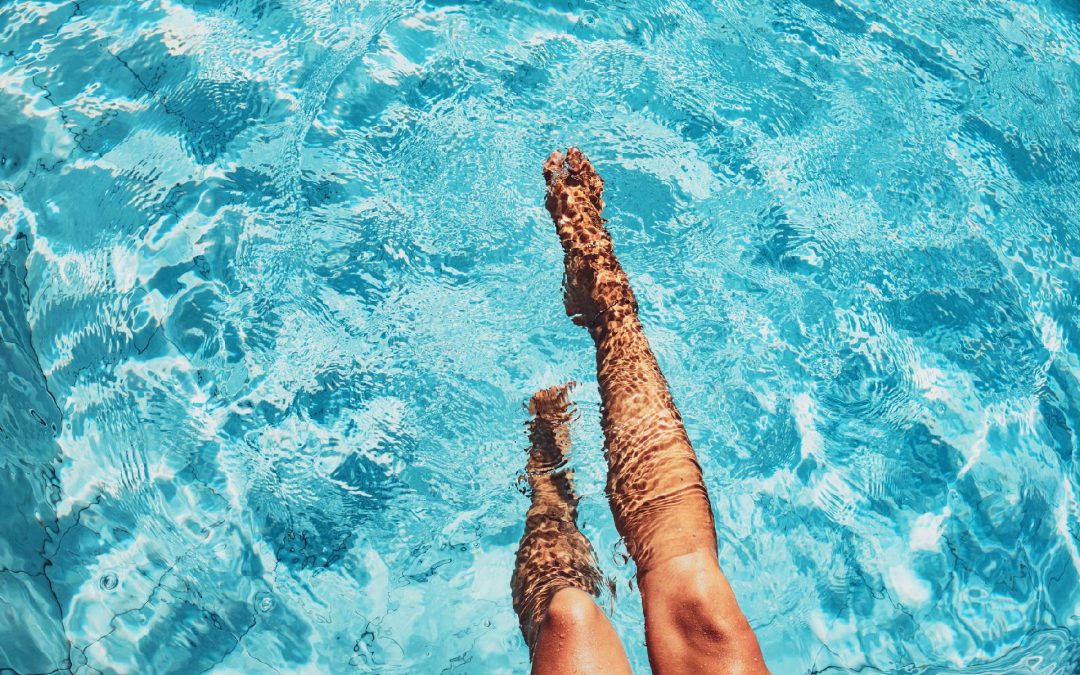How can I tell if my pool water isn’t balanced?
There are a few tell-tale signs you might notice if your water isn’t properly balanced.
These are things like itchy eyes, dry skin, faded swimsuits, and cloudy water. Many of the signs of improperly balanced water might actually seem like they are problems with the filtration system.
Make sure you’re performing routine water tests and regularly applying the correct amounts of sanitizers and water-balancing chemicals.
If you’re not sure you’re performing your tests properly, or think you may have made some mistakes with the chemicals, you can always call a us to come to come and take a look for you. We offer a water analysis for free.
Is there an easier way to clean my pool?
Let’s be honest — cleaning and maintaining your pool is probably the least entertaining
part of having one. It might not be much fun, but thankfully it can be a lot easier if you invest in an robot pool cleaner. The unit will pay for itself in the hours of work saved
over the lifetime of your pool. Plus you will have less water loss and use less chemicals. Give us a call and we’ll let you know how easy it is.
How often should I perform maintenance on my pool?
Keeping up a proper maintenance routine for your pool is vital for the health of your pool, as well as for the health of those using it. Though every pool is different because of it’s design, use, and location, here are some basic maintenance guildlines. For information more specific to your situation, call us today.
What should I know about safe use of pool chemicals?
Like any other cleaner or solvent, your pool chemicals can be hazardous if they’re not
handled properly. Misuse can lead to skin irritation, damage to the eyes, or even start a fire.
Keep sanitizers in a cool dry place, out of direct sunlight, and away from other chemicals. Keep them away from children. Keep them away from lawns or places they could leak into the ground.
Don’t mix different products together, even if they seem to be similar. Use clean, dry plastic cups or scoops, and never put wet measuring scoops back into a container.
If a spill occurs, follow the instructions for cleanup on the product label.
What else should I be concerned about?
As long as you keep your water properly balanced, you should enjoy years of problem-free use of your pool or hot tub. Eventually, though, you may need to worry about repairing or renovating the surface of the pool due to accidental damage or a natural disaster.
Though some repairs — like small holes in a vinyl liner or loose tiles along the waterline — could be managed by a diligent DIY-er, most will require a trained professional.
When purchasing product and chemicals online you will have a limited or no warranty. Most pool companies will have an extra service fee and may have you sign a waiver to repair your pool. Chemicals purchased at a big box store or online will cost you more in the long run. You end up using more product for the same result as when purchased from a store that specializes in pool chemicals and products.
Things to do daily
- Check the water level and fill to recommended level.
- Test pH and sanitizer levels and make needed adjustments.
- Empty skimmer basket and pump strainer basket.
- Skim leaves and other debris from pool surface.
- Circulate the water till it turns over at least once – about eight to twelve hours depending on your pump.
Things to do weekly
- Brush all pool walls and floor to prevent algae buildup.
- Clean waterline tile or vinyl.
- Vacuum the pool bottom.
- Shock the water in the evening unless you are using oxidizers. (Additional shocking may be needed after a rainstorm, heavy bather load, or exceptionally hot weather.)
- Add an algaecide the day after you shock the water.
- Clean or backwash the filter. More frequent filter cleaning may be necessary depending on how much debris is introduced into the pool.
Things to do monthly
- Test water for total alkalinity, calcium hardness, and stabilizer levels.

